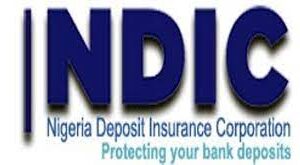Abdullahi M. Gulloma
This week, Vice President Yemi Osinbajo led Nigerian delegation to this year’s World Economic Forum in Davos, Switzerland.
As the world’s elite and leaders gather in Davos, the issue of the remarkable numbers of people who have grown enraged at the economic elite and their tendency to corner the spoils of globalisation will dominate discussions at the event.
The elite, comprising heads of states, businessmen, diplomats, bankers and technology executives will be concerned with how to make globalisation a lucrative proposition for the masses. Discussions, according to agenda of the event, will be focused on finding the best way to make globalisation work and revive the middle class.
But in an honest situation, the issue of empowering workers to bargain for better wages and redistribution of wealth from the top to the bottom should be at the top of discussions at the World Economic Forum.
“That agenda is anathema to a lot of Davos men and women,” said Joseph E. Stiglitz, a Nobel laureate economist and author of numerous books on globalisation and economic inequality, in the New York Times. “More rights to bargain for workers, that’s the part where Davos man is going to get stuck. The stark reality is that globalisation has reduced the bargaining power of workers, and corporations have taken advantage of it.”
Yet, even more germane issue for participants at the forum to discuss is: How concentrated has wealth becomes in the globalised modern world? According to Oxfam, eight of the richest people on earth own as much combined wealth as half the human race. Unfortunately, none of this eight people comes from Africa. They are: Bill Gates, the founder of Microsoft, with a net worth of $75 billion, and he is scheduled to speak at the forum in Davos; Amancio Ortega Gaona, the Spanish founder of the fashion company Inditex, best known for its oldest and biggest brand, Zara, with a net worth of $67 billion; Warren E. Buffet, Chairman of Berkshire Hathaway, with a net worth of $60.8 billion, and Carlos Slim Helu, the Mexican telecommunications magnate, with a net worth of $50 billion.
Others are Jeff Bezos, the founder of Amazon, with a net worth of $45.2 billion; Mark Zuckerberg, Facebook’s creator, with a net worth of $44.6 billion; Lawrence J. Ellison, the founder of Oracle, with a net worth of $43.6 billionel, and Michael R. Bloomberg, the former mayor of New York and founder of the media and financial-data giant Bloomberg L.L.P., with a net worth of $40 billion.
Oxfam based its figures in part on Forbes’s annual list of billionaires and the magazine’s estimates of their wealth.
Therefore, for African leaders attending the Davos Forum, the issues of poverty and wealth distribution and welfare of their workers and people should be their concern.
It is not enough to fight to attract foreign direct investment to their countries, as they often do, without caring to know how the international investors treat African employees, transfer technology and help in creation of wealth in the local scene.
It is regrettable that Africa has been turned into supplier of foreign raw materials and, invariably, jobs abroad, and became the major importer of finished goods. As the late Professor Ali Mazrui used to say, we produce what we don’t use and use what we don’t produce.
This situation, certainly, won’t help to develop African economies and or its peoples, and it can only further impoverish the continent.
Indeed, Osinbajo and his colleagues at the Davos Forum have enormous work to do to ameliorate sufferings in Africa and, in time to come, be remembered for their participation at this year’s crucial meeting of the very important people in the globe.



